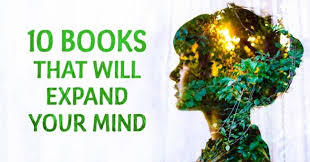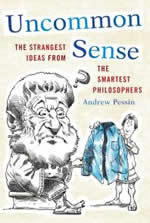#andrew pessin
Text
by Andrew Pessin
Four days in, after explicit images of the slaughter had been blasting around the internet nonstop for days, my college administration, and my faculty colleagues, had remained silent. In contrast, when a single Black man died by a police officer far away a few years ago the place had exploded for days. When an administrator more recently scheduled an event at a venue that 40 years earlier had racist admissions policies there were weeks of outrage, the canceling of classes and then of the administrator. The misuse of pronouns here can get you disciplined on a bias charge, in this age of microaggressions and in the name of promoting inclusion.
But when (now) 1400+ Jews are slaughtered in cold blood, live on camera, there is—silence.
And not just slaughtered: bloodthirsty murderers going house to house, murdering entire families, children, grandparents, medics and first responders, raping women and little girls, abusing corpses, burning down houses with their families inside like in medieval times, paragliding into a music festival with automatic weapons gunning down 260 young adults (same age as our students), not to mention taking 200+ hostages (women, children, elderly) whom they have threatened to execute publicly (assuming they are still alive) —no different from the Nazi Einsatzgruppen, except that the Nazis didn’t have the ability to also livestream their atrocities—
There was silence.
Actually worse: business as usual. Chatter about upcoming events, department business, the usual weekly newsletters, announcements re upcoming meetings. Nothing to talk about, folks, it’s just Jews being slaughtered on the largest scale since the Holocaust.
“We must take care of our students”—a wonderful rallying cry that fills up our airwaves whenever any identity group is perceived to have received a harm, however abstract that harm is, however removed that harm might be from them directly and personally.
Except for Jews—whose family members, friends, and acquaintances were literally just gunned down, raped, burned alive, decapitated, all livestreamed. (They used one grandmother’s phone to film their execution of her, then posted the video to her own Facebook account so everyone she knew could witness it—which is how her family learned of her fate.)
59 notes
·
View notes
Text
WWW Wednesday -August 1, 2018
WWW Wednesday -August 1, 2018

Welcome to August 2018 everyone!!!
I was going to add a list of my current reads to my July Wrap-Up yesterday, but since today (then tomorrow) is Wednesday, I skipped it.
WWW Wednesday is a weekly meme hosted by Taking on a World of Words. I’ve been doing it for a couple of months now (I think) and it’s a lot of fun sharing what I’m currently reading, but I’m also really enjoying visiting the…
View On WordPress
#Allison Lee Palmer#Andrew Pessin#books#Dark Queen Rising#Jill Baguchinsky#Mammoth#Paul Doherty#The Irrationalist#The Sun King
0 notes
Text
“Ao viver, parece que temos verdadeiras opções à nossa frente; que a estrada se divide em vários caminhos e que depende de nós qual deles vamos tomar. Mas isso é uma ilusão. Não existem vários caminhos. O que você “escolhe” está inteiramente determinado por todos esses fatores que não estão sob seu controle. Na verdade, só existe uma única estrada à frente, cheia de curvas e declives, e você simplesmente não tem nenhuma escolha, a não ser segui-la.”
- Andrew Pessin
0 notes
Text
0 notes
Text
The Irrationalist by Andrew Pessin

Synopsis:
Who would want to murder the world’s most famous philosopher?
Turns out: nearly everyone.
In 1649, Descartes was invited by the Queen of Sweden to become her Court Philosopher. Though he was the world’s leading philosopher, his life had by this point fallen apart. He was 53, penniless, living in exile in the United Provinces, alone. With much trepidation but not much choice, he arrived…
View On WordPress
0 notes
Text
Recommendation letter Flap Illustrates Increasingly Hostile Campus Climate for Israel Supporters
Recommendation letter Flap Illustrates Increasingly Hostile Campus Climate for Israel Supporters
After he criticized Hamas in a 2014 Facebook post, Connecticut College Professor Andrew Pessin was forced into a sabbatical due to threats and faculty ostracism. On the same campus, however, rabidly anti-Israel speakers were invited, including one who pushed the anti-Semitic conspiracy theory that Israel harvested Palestinians’ organs and engaged in medical experimentation.
One of Pessin’s…
View On WordPress
0 notes
Text
Following Books are Expand our mind

WHO WILL CRY WHEN YOU WILL DIE
This book have inspired million of people across the world including STEVE JOBS . This book describes the 18th- 19th century monks from India who have achieved superpowers through MEDITATION . Majestic BABAS across india with different superhuman abilities will surely inspire you to achieve greater being
2. Shakti Gawain : Creative Visualisation
This is one of my personal favorite book on power of imagination . And it is a complete guide on think and achieve and I personally recommend you to give this book a try
3. Losing my virginity : Richard Branson
This book is an autobiography of an Adventure loving entrepreneur and Billionaire and this book will give you hope and courage for your worse days as a entrepreneur . It gives you lesson on how to balance life between fun and money and gives you courage for risking anything
4. Thin And Grow Rich
Best work from Napolean Hill , This is one of the all time best book and I will suggest you to read this book and make small notes on the topic that you require .
5. Demon Haunted World : Carl Sagan
This book is for the one who love mystries and this will broaden your thinking and change your thinking toward universe
6. How The Mind Works
What better way to expand your mind than by understanding more about it? How the Mind Works by Steven Pinker is a book about just that. Pinker is an experimental psychologist, linguist, cognitive scientist, and author. He’s forgotten more about our minds — how we think and learn — and language than most of us will ever know, but he explains it in a way that most of us can easily understand. This book looks not just at how the mind works, but tackles specific questions like why and how do we fall in love, why — as rational beings — we’re so often irrational, and how our brain allows us to see in three dimensions. If you have a question about your mind, the answer is probably her
7. Thinking, Fast and Slow
Thinking, Fast and Slow is a bit of a behemoth. Its author, Daniel Kahneman, won a Nobel Prize for behavioural economics in 2002. As a psychologist, he deals primarily with the psychology of judgment and decision-making. With those kinds of credentials, you know he’s going to delve into some complicated ideas. And he does. The book can be a bit of a slog for the average reader, but if you push through, you emerge better for it on the other side. Kahneman divides out thinking into System 1 and System 2, the fast and slow from the book’s title, and how they work together…and sometimes at odds with each other. He systematically examines intuition, risk taking, biases, and decision making, among many other subjects. It will change the way you think about thinking, and likely even how you live your life.
8. The Black Swan: The Impact of the Highly Improbable
The Black Swan by Nassim Nicholas Taleb is very well-known, and deservedly so. Not everyone can claim to have launched a respected and popular theory, but Taleb — a statistician and risk analyst — did just that with this book. In the theory, a black swan event is improbable but causes huge consequences. They’re unpredictable, have massive influence, and are explained away in some manner after the fact (humans tend not to like random events and circumstances).
Taleb explores many black swans — the 9/11 terrorist attacks, the success of Google — and offers guidance on how to bounce back from negative ones, and capitalize on positive ones. According to Taleb, by their very definition, you can’t predict a black swan. You can only react.
9. The Alchemist
The Alchemist by Paulo Coelho packs a powerful punch in a small package. You could probably read the entire thing, cover to cover, in less than two hours. But don’t let that fool you. The book — translated into over 80 languages — has a massive following the world over.
The Alchemist tells the story of Santiago, a shepherd boy from Spain, and his travels to Egypt in search of a secret treasure. Along the way, he meets a cast of characters that all teach him some valuable lessons. The allegory teaches us to listen to our hearts and follow our “personal legend” in all things. It’s a delightfully simplistic mix of magic, wisdom, mysticism, and common sense…things we could all use a little more of.
10. Flow: The Psychology of Optimal Experience
Ever been in the “zone”. Ever had time fly by in an instant while doing something that you love? If so, then you’ve experienced the flow already. Flow: The Psychology of Optimal Experience by Mihaly Csikszentmihalyi (try saying that three times fast) provides the tools you need to perform your best. You can learn to control this “flow”, willing it into existence rather than waiting for it to appear, and experience greater happiness, enjoyment, and creativity in all that you do. A timeless work for everyone.
11. Cosmos and A Brief History of Time
This is a two-for-one bonus. Cosmos by Carl Sagan, and A Brief History of Time by Stephen Hawking, both tackle nothing less than the universe and our place in it. A colossal undertaking, but handled with aplomb by both authors. Sagan — an astronomer, astrophysicist, and astrobiologist — and Hawking — the world’s leading theoretical physicist — explain our world and beyond in a way no one has done since or before. Cosmos explores 14 billion years of existence, mixing science, philosophy, and speculation in an easy to digest package. A Brief History of Time attempts to explain such complicated topics as black holes, time travel, and the big bang itself.
12. This Will Make You Smarter: New Scientific Concepts to Improve Your Thinking
This Will Make You Smarter: New Scientific Concepts to Improve Your Thinking, edited by John Brockman, covers a wide range of topics from some of the leading minds in the world today. Brockman started with one simple question: what scientific concept would improve everybody’s cognitive toolkit? Jonah Lehrer writes about willpower, Daniel Kahneman (of Thinking, Fast and Slow fame) introduces the focusing illusion, and Charles Seife tackles randomness in the universe. And there are dozens more. The title promises to make you smarter. That’s the very definition of expanding your mind…so read on!
13. Uncommon Sense: The Strangest Ideas from the Smartest Philosophers
Uncommon Sense: The Strangest Ideas from the Smartest Philosophers by Andrew Pessin is a collection of ideas from some of history’s greatest philosophers. It’s a fast-track exploration, starting with the Greeks Plato and Aristotle, and culminating with Thomas Nagel and David Chalmers. Pessin includes most of the thinkers you’ve at least heard of and boils their complicated thoughts down to their essence. More specifically, he examines their strange ideas, the ones that appear somewhat crazy or odd upon first glance, but can’t be dismissed outright when examined under the microscope.
14. Waking Up: A Guide to Spirituality Without Religion
Waking Up: A Guide to Spirituality Without Religion by Sam Harris offers a look at removing organized religion from spiritual fulfilment. Is it possible? Harris, a neuroscientist and philosopher (how’s that for a combo?!), says absolutely. Through meditation, rational practice, and an understanding of neuroscience and psychology, Harris provides a roadmap for anyone looking to remain spiritual in an increasingly secular world.
15. The Book and The Wisdom of Insecurity
Yet another two-for-one for your consideration. Alan Watts was a tremendously influential philosopher and writer, and he was instrumental in bringing Eastern thought to a Western audience. Two of his best works are The Book: On the Taboo of Knowing Who You Are and The Wisdom of Insecurity: A Message for an Age of Anxiety.
The Book deals with our place in the big picture. Our belief that we are isolated and separate from the universe is the root of the hostility and maliciousness we see in the world. Watts provides a framework for being human in this popular title, outlining the folly of our thinking, and how to adapt it.
0 notes
Photo

Uncommon Sense: The Strangest Ideas from the Smartest Philosophers
Andrew Pessin
eBook - click to read
0 notes
Link
Hali Spiegel, North American campus director for media watchdog CAMERA, often hears from concerned parents about how to help protect their children from anti-Israel attacks. Giving them a strong Jewish education and sending them to Jewish overnight summer camps are both important, she maintains.
“But even more important is what they learn at home,” she says. “Reading books and watching Israeli history videos together, talking about the issues at dinner and answering their questions so they know what the issues are and who the players are—all of these prepare them for what they may hear on campus and empower them to be a strong and outspoken voice for what they believe and for their people, but also to understand this is not going to always be easy or please everyone.”
Ever since Andrew Pessin co-edited Anti-Zionism on Campus: The University, Free Speech and BDS, the Connecticut College philosophy professor has heard from countless Jewish students who were told by professors and friends that they weren’t given the “whole truth” growing up and who don’t know how to respond. “To protect my own kids from that, I tell them everything—the history as I know it, including the Palestinian narrative and where I believe that narrative can be refuted.”
Much of Pessin’s concerns about today’s campus atmosphere can be found in the pages of his new novel, Nevergreen, featuring a campus mired in cancel culture. “And, though they claim to be about social justice and human rights, with a little digging you discover accusations that Israel, and, in fact, all Jews are white oppressors and the targeting of Jewish students on campus. The truth is whenever large groups of people are gripped by some all-consuming universalist ideology, as campus activists currently are, it never turns out well for the Jews.”
And that, he maintains, makes knowing their own people’s history, along with a strong, positive Jewish identity, the winning formula. “Because it’s simply not possible to be steeped in the history of the Jews and Judaism without understanding the historical Jewish connection to that small piece of the world.”
For a generation devoted to human rights, unmasking the double standard can be eye-opening. So says Richard Landes, a retired Boston University history professor who also served as that Hillel’s faculty adviser. “Amid all the Israel-bashing—the push for BDS and Israeli Apartheid Week—few seem to notice that the Palestinians, like most of the Arab world, are way to the far-right on all the human-rights issues and freedom of speech they criticize Israel for, including feminism and gay rights,” he points out. “The prejudice in that part of the world is overwhelming.”
Students with UC Berkeley’s “Bears for Israel” hold a counter-demonstration at a Students for Justice in Palestine rally in the fall of 2018. Source: “Bears for Israel” via Facebook.
11 notes
·
View notes
Text
WWW Wednesday -July 25, 2018
WWW Wednesday -July 25, 2018

WWW Wednesday is a weekly meme hosted by Taking on a World of Words. I’ve been doing it for a few weeks now and it’s a lot of fun sharing what all I’m currently reading and visiting the other participant blogs to find more to add to my TBR pile!!!
Don’t know what it is or how to participate??? All you need to do is answer the following three questions and link back to Taking on a World of Words,…
View On WordPress
#Allison Lee Palmer#Andrew Pessin#Anne Marie Ruff#Beneath the Same Heaven#books#Dark Queen Rising#Jill Baguchinsky#Mammoth#Paul Doherty#The Irrationalist#The Sun King
0 notes
Text
“Estamos tão acostumados a ver pessoas que paramos de refletir sobre elas.”
- Andrew Pessin
0 notes
Text
Book Review: The Irrationalist - Andrew Pessin
Thank you to @OpenBooksTitles and @60SecondPhilos! The Irrationalist by Andrew Pessin is perfect for fans of historical fiction, particularly if you like the dish detailed and with a side of pretty gruesome violence #bookworm #bookreview #historicalfiction
***I was kindly provided with a free copy of this book by the author and OpenBooks in exchange for an honest review. All the opinions stated below are my own ***
Goodreads – The Irrationalist
Who would want to murder the world’s most famous philosopher?
Turns out: nearly everyone.
In 1649, Descartes was invited by the Queen of Sweden to become her Court Philosopher. Though he was the world’s…
View On WordPress
#amreading#Andrew Pessin#bookblog#bookreview#bookworm#historical fiction#OpenBooks#The Irrationalist
0 notes
Link
The March 2019 Duke-UNC conference happened too recently to be included in Anti-Zionism on Campus: The University, Free Speech, and BDS, the first book published by an academic press to contextualize first-hand accounts from faculty and students who became ensnared in the systematic assaults against Israel—and by extension Jews—that have become commonplace in higher education. Through this collection we get a disturbing picture of how students and faculty in the self-proclaimed progressive movement have demonized and marginalized Israel, its advocates, and anyone who wishes to genuinely learn about the Jewish State. Although such progressives claim that anti-Zionism is not anti-Semitism, because they are attacking a political entity and the ideologues who uphold it, not an ethno-religious community, these essays suggest otherwise. They make a strong case for those who argue that anti-Zionism is the “new anti-Semitism.” Indeed, if the two were distinct phenomena, why in the world would a room full of engaged university citizens ostensibly eager to learn about the context of the Palestinian-Israeli conflict applaud a performer who urges them to “go that anti-Semitic” and treats being “in love with a Jew” as a parodic badge of shame?
It is a badge of shame because these activists have one objective: to humiliate everyone who can be branded as “complicit in Zionism.” This includes faculty who sponsor events featuring Israeli speakers, students who publicly oppose boycott and divestment from Israel resolutions (BDS), and even those who advocate for the rights of the LGBT community in the Jewish State (rights they in fact possess, as opposed to the citizens of every other state in the Middle East).
As Professors Andrew Pessin and Doron Ben-Atar write, “Where some might see in Israel a prosperous (if flawed) liberal democracy, or the only modern example of an indigenous people reclaiming lost sovereignty over its homeland, the new campus orthodoxy sees only an apartheid regime founded on racism, genocide, ethnic cleansing, and colonialist imperialism,” all of which are terms they routinely deploy without empirical evidence. Zionism is illegitimate and “Jewish democracy is an offensive oxymoron” because it is impossible for a Jewish State to exist or to have come into being without the violent dispossession and displacement of the land’s alleged rightful indigenous inhabitants (thus, incidentally, the pitch-perfect phrasing of Nafar’s song: “Her skin is white, my skin is brown,” though of course it doesn’t describe Israeli reality).
This view, belligerently propagated by Students for Justice in Palestine (SJP), Jewish Voice for Peace (JVP), and similar activist networks, rejects outright the idea of a two-state solution to the conflict, precisely because it legitimates the Zionist project, which they argue is little more than European imperialism masquerading as Jewish self-determination. Rejecting the legitimacy of the “Zionist narrative” absolves Palestinian activists from any responsibility to engage respectfully with their opponents through debate, negotiation, and empathy. Such absolution is a license to boycott, malign, and threaten anyone who affiliates with Israel.
7 notes
·
View notes
Text
"Estamos tão acostumados a ver pessoas que paramos de refletir sobre elas."
Pessin, Andrew
0 notes
Text
"You Choose, You Lose"
You notice five children playing on some railroad tracks. Absorbed in their play, the don't notice the train coming down the track towards them. But luckily, the track forks before them and you are standing right at the switch. By merely pressing the button you can divert the train and thereby spare the children. But then you notice that down the other tracks is a single child playing alone. To do nothing is to allow the train to kill the five children on the first track; to press the button is to save those five but send the solitary child to her destiny. What should you do?
To many people it's as obvious as it is unpleasant that you must press the button: the right thing to do is to kill the one in order to save the many.
But now consider a different scenario. You are a doctor in a pediatric emergency ward. Five children are about to die from different failing organs: heart, kidney, lung, etc. You notice that outside, playing in the hospital playground, is a single healthy child playing alone. You happen to know that she has the same blood type as all the dying children. Technology has improved so much that it would relatively simple matter to snatch the playground child, harvest her organs, and transplant them into respective dying children, thereby saving them all. For yo to do nothing is to allow the five children to die; to give the word is to save those five but send the solitary child to her destiny. What should you do?
To many people it's now an unpleasant as it it is obvious that you must not press the button: the right thing to is to spare the one and kill the many.
But the two situation seem fundamentally analogous. So are people's moral beliefs deeply confused here? Or is it that morality itself, perhaps, is confused - that whichever way you choose, you lose?
- Andrew Pessin
4 notes
·
View notes
Link
Something quite remarkable happened last week. It happened quietly, in a remote corner of some administrative building probably, but it ought to be loudly disseminated across the Western world. Not to be overly dramatic, but Western civilization just might have saved itself—from itself.
For universities are the heart of that civilization, and last week, a university’s student government suddenly remembered what the overall purpose of student governments is—which itself ought to remind universities of what their overall purpose is.
The Judicial Board at Montreal’s McGill University ruled last Tuesday that resolutions affirming the Boycott, Divestment, and Sanctions (BDS) campaign against Israel violate the Constitution and Equity Policy of its student government, the Students’ Society of McGill University (SSMU). That means that McGill, whose campus has in the past 18 months endured three consecutive BDS campaigns and votes, all of which ultimately failed, will finally be able to return full-time to its proper business.
The reasoning in the decision is so clear that it’s downright refreshing.
12 notes
·
View notes